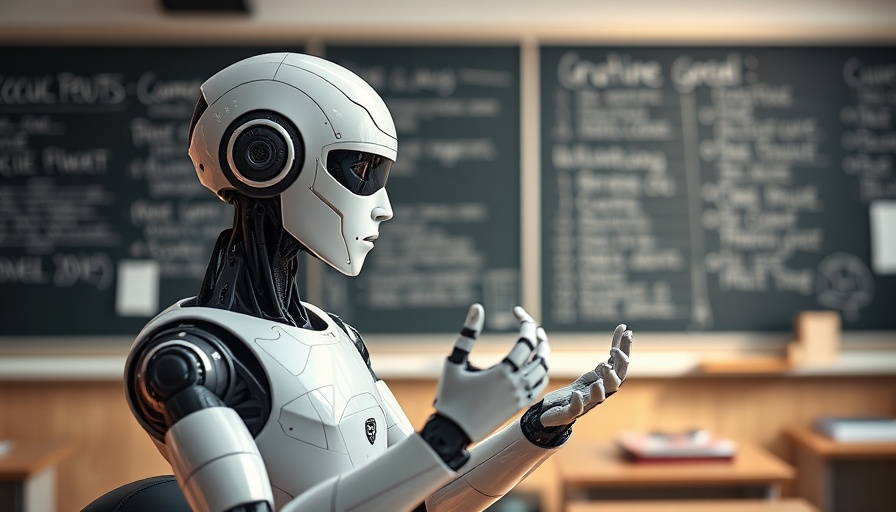
How AI is Transforming Education: A New Era of Learning
In an age defined by technological advancement, artificial intelligence (AI) is at the forefront of transforming education. Systems like ChatGPT are reshaping not only how we learn but also the skills required in a dramatically changing job market. As we navigate this transition, understanding AI’s potential is crucial for students and educators alike.
AI's Role in Personalized Learning
AI empowers personalized learning experiences, allowing students to engage with materials suited to their individual needs. Tools such as adaptive learning platforms can analyze student performance in real-time and tailor educational content accordingly. This level of personalization not only improves learning outcomes but fosters a more inclusive environment. For students with differing learning abilities, access to tailored resources can bridge the gap that traditional educational methods often miss.
Enhancing Teacher Effectiveness Through Automation
One of the most significant advantages of AI in education lies in automating administrative tasks. By taking over repetitive duties like grading and attendance tracking, AI frees educators to engage more with their students. This shift not only enhances the learning experience but empowers teachers to focus on delivering high-quality, meaningful interactions instead of clerical work.
New Career Opportunities in AI-Driven Education
The rise of AI in education is also paving the way for new career paths that blend technology and teaching. Learning Experience Designers (LXDs), for example, are crucial in crafting personalized educational experiences leveraging AI insights. This new role requires collaboration between educators and tech specialists to ensure curricula meet diverse student needs. Community Builders, who create online environments where students can collaborate, are also emerging as key players in the educational landscape.
Addressing Ethical and Equity Concerns
While AI holds promise, it also brings forth ethical challenges. Key among these is ensuring marginalized groups benefit from AI advancements rather than being further disadvantaged. Educational institutions must prioritize equitable AI development that addresses existing disparities in access and opportunity. This includes fostering digital literacy and ethical understanding of AI among students.
Preparing for an AI-Enhanced Future
AI not only necessitates new teaching methodologies but also requires revisions to curriculum standards. Schools should incorporate AI literacy to prepare students for the workforce. This education must encompass the fundamentals of AI, the implications of its use, and strategies for responsible engagement with emerging technologies.
Conclusion: The Future of Education is Here
As we stand on the threshold of an AI-enhanced educational landscape, the potential for improved learning and teaching experiences is immense. By embracing AI responsibly, we can create a future where technology amplifies human capabilities rather than supplanting them. To ensure that this transformation benefits all, stakeholders must work collaboratively to navigate the challenges and advocate for an equitable approach to education.
 Add Row
Add Row  Add
Add 




Write A Comment